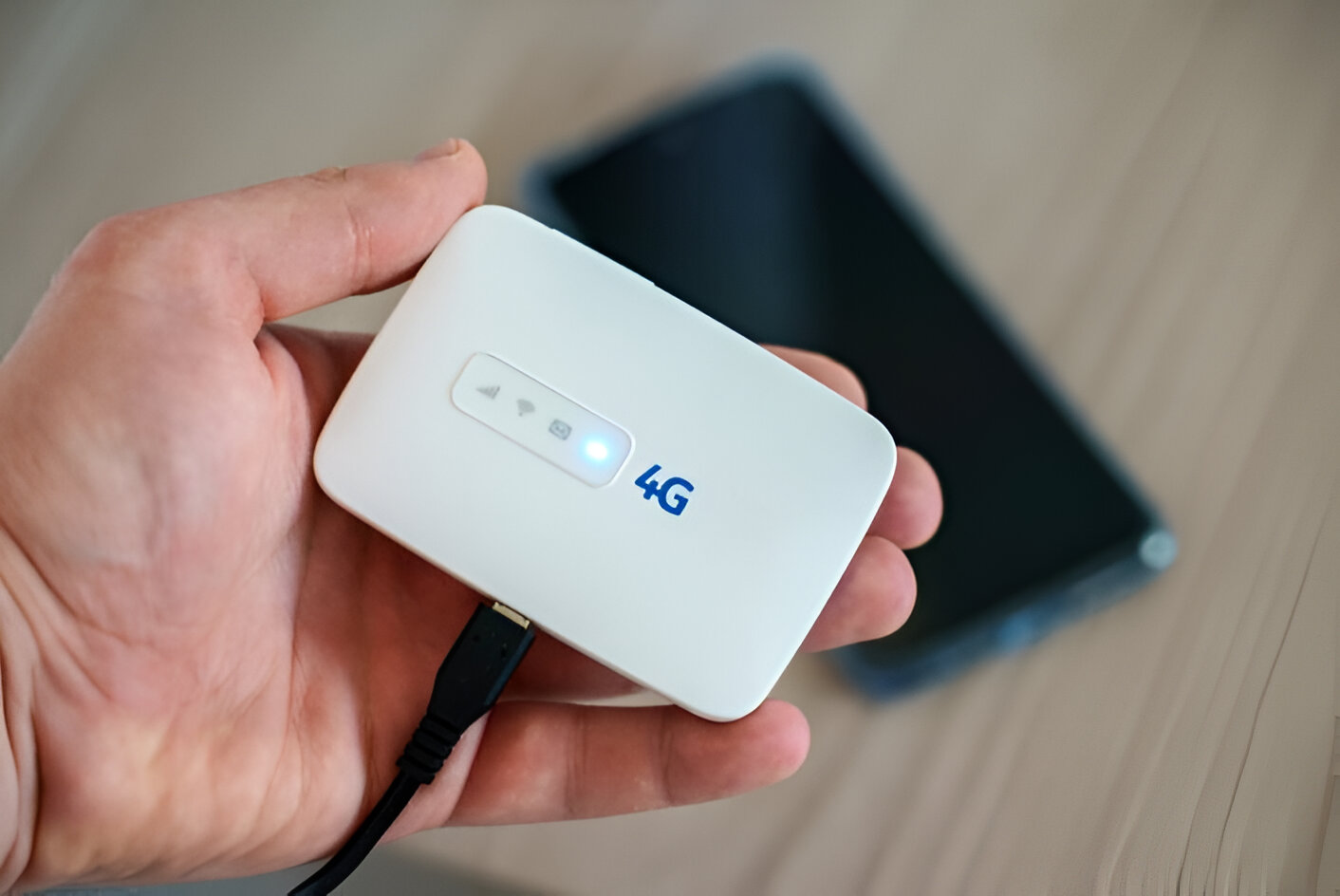Choosing the Right Internet Service Provider
Selecting the ideal internet service provider (ISP) is a crucial decision that significantly impacts your online experience. With various options available, it's essential to consider several factors to ensure you make an informed choice. Here are the key considerations when choosing an ISP:
1. Internet Speed and Bandwidth
The speed and bandwidth of your internet connection directly affect your online activities. Whether you're streaming high-definition videos, engaging in online gaming, or simply browsing the web, it's important to choose a provider that offers sufficient speed to meet your needs. Consider the number of devices that will be connected to the internet simultaneously and the bandwidth required for each activity.
2. Reliability and Uptime
Reliable internet connectivity is crucial for both personal and professional use. Look for an ISP with a reputation for minimal downtime and consistent service. Research customer reviews and ratings to gauge the reliability of different ISPs in your area.
3. Customer Support and Service Level Agreements (SLAs)
In the event of technical issues or service disruptions, responsive customer support is invaluable. Prioritize ISPs known for their prompt and effective customer service. Additionally, review the service level agreements (SLAs) offered by different providers to understand the support and compensation they provide in case of service interruptions.
4. Pricing and Packages
Compare the pricing and packages offered by different ISPs to find the most suitable option for your budget and requirements. Take note of any promotional offers, introductory rates, and long-term contract commitments. Factor in installation fees, equipment costs, and any additional charges to accurately assess the overall cost.
5. Availability and Coverage
Check the availability and coverage of each ISP in your area. While some providers may offer impressive services, they may not have coverage in your specific location. Confirm the availability of the desired ISP in your area to avoid any potential connectivity issues.
6. Additional Features and Services
Consider any additional features or services offered by ISPs, such as bundled packages including TV or phone services, free Wi-Fi hotspot access, or security features. These supplementary offerings can add value to your internet subscription and enhance your overall experience.
By carefully evaluating these factors, you can make an informed decision when choosing an internet service provider that aligns with your specific needs, ensuring a seamless and satisfying online experience.
Evaluating Mobile Hotspot Devices
When considering mobile hotspot devices, it's essential to assess various factors to determine the most suitable option for your connectivity needs. Mobile hotspots, also known as portable Wi-Fi routers, enable users to access the internet on the go, making them a valuable tool for individuals and businesses alike. Here are the key aspects to consider when evaluating mobile hotspot devices:
-
Network Compatibility and Speed: Before selecting a mobile hotspot device, it's crucial to ensure that it is compatible with the network frequencies and technologies offered by your preferred service provider. Different carriers utilize varying network bands, so verifying compatibility is essential. Additionally, consider the maximum supported download and upload speeds to ensure the device meets your performance expectations.
-
Battery Life and Portability: The battery life of a mobile hotspot device directly impacts its usability, especially during extended periods of travel or remote work. Evaluate the advertised battery life and consider real-world usage scenarios to determine if the device can accommodate your needs. Furthermore, the portability of the device, including its size and weight, contributes to its convenience and suitability for mobile use.
-
Device Features and Security: Assess the features offered by different mobile hotspot devices, such as the presence of a touchscreen interface, external antenna ports for signal enhancement, and built-in security protocols. Additionally, consider the availability of advanced security features, including WPA3 encryption, to safeguard your wireless connections from potential threats.
-
Coverage and Signal Strength: Investigate the coverage maps and signal strength of the service provider associated with the mobile hotspot device. Reliable connectivity hinges on strong network coverage, particularly in areas where you anticipate frequent usage. Conduct thorough research and consider user feedback to gauge the consistency and quality of the signal provided by the respective carrier.
-
Data Plans and Flexibility: Explore the data plans and pricing options offered by the service providers for their mobile hotspot devices. Assess the flexibility of the plans, including the ability to adjust data allowances based on your usage patterns. Additionally, consider any potential data throttling or deprioritization policies that may impact your connectivity experience.
By meticulously evaluating these factors, you can make an informed decision when selecting a mobile hotspot device that aligns with your specific requirements. Whether you prioritize network compatibility, battery longevity, or security features, a comprehensive assessment ensures that your chosen device effectively supports your mobile internet needs.
Considering Home Internet Options
When evaluating home internet options, it is essential to explore the diverse array of services available to ensure that you select the most suitable solution for your specific needs. The following factors should be carefully considered when assessing home internet options:
-
Fiber Optic Internet: Fiber optic internet is renowned for its exceptional speed and reliability. It utilizes fiber optic cables to deliver data at remarkable speeds, making it an ideal choice for households with high-bandwidth demands. When considering fiber optic internet, it is crucial to verify its availability in your area, as this technology may not be universally accessible.
-
Cable Internet: Cable internet leverages the existing cable television infrastructure to provide high-speed internet connectivity. This option is widely available in urban and suburban areas, offering competitive speeds and consistent performance. When contemplating cable internet, it is beneficial to research the local providers and compare their offerings to identify the most cost-effective and reliable solution.
-
DSL Internet: Digital Subscriber Line (DSL) internet utilizes telephone lines to transmit data, offering a widely available and budget-friendly internet option. While DSL may not deliver the same speeds as fiber optic or cable internet, it remains a viable choice for households with moderate internet usage requirements. Assessing the DSL coverage and speeds in your area is crucial when considering this option.
-
Satellite Internet: Satellite internet is a valuable alternative for individuals residing in rural or remote locations where traditional wired internet services may be limited. By leveraging satellite communication, this technology provides internet access across a broad geographic area. However, it is important to consider potential latency issues and data usage limitations associated with satellite internet.
-
Wireless Internet: Wireless internet, often delivered via fixed wireless or mobile broadband services, offers flexibility and mobility for users. Fixed wireless internet relies on radio signals from nearby towers to establish connectivity, while mobile broadband utilizes cellular networks to deliver internet access. When contemplating wireless internet, it is essential to assess the coverage, speed, and data plans offered by different providers.
-
Hybrid Solutions: Some areas may benefit from hybrid internet solutions that combine multiple technologies, such as fiber optic and wireless connections, to deliver enhanced reliability and performance. Assessing the availability of hybrid internet options and understanding their unique benefits can aid in making an informed decision for your home internet needs.
By thoroughly considering these home internet options and assessing their availability, performance, and suitability for your specific location and usage requirements, you can make an informed choice that aligns with your connectivity needs. Each option presents distinct advantages and considerations, empowering you to select the most appropriate home internet solution for a seamless online experience.
Assessing Data Plans and Usage Limits
When evaluating data plans and usage limits for internet connectivity, it is imperative to delve into the intricacies of each offering to ensure that it aligns with your specific usage patterns and requirements. Data plans play a pivotal role in determining the amount of data you can utilize within a specified timeframe, while usage limits govern the thresholds that, when exceeded, may result in reduced speeds or additional charges. Here's a comprehensive exploration of the key considerations when assessing data plans and usage limits:
1. Data Allocation and Utilization
Understanding your typical data consumption is fundamental in selecting an appropriate data plan. Whether you engage in activities such as video streaming, online gaming, or remote work, it is essential to gauge the amount of data these endeavors necessitate. By examining your historical usage or estimating your future requirements, you can align your data plan with your anticipated utilization.
2. Throttling and Deprioritization Policies
Some data plans incorporate throttling or deprioritization measures, wherein speeds may be reduced after surpassing a certain data threshold. It is crucial to comprehend these policies and their potential impact on your internet experience. Assess the implications of reduced speeds on your activities and ascertain if the data plan offers sufficient data allowances to mitigate the risk of throttling.
3. Overage Charges and Additional Fees
Carefully scrutinize the terms related to overage charges and additional fees associated with exceeding data limits. Some providers may levy extra fees for surpassing the allotted data, while others offer options to either incur additional charges or experience reduced speeds. Evaluating these aspects enables you to make an informed decision based on your preferences and budgetary considerations.
4. Unlimited Data Plans and Fair Usage Policies
Providers often offer unlimited data plans, accompanied by fair usage policies that outline acceptable usage thresholds. It is imperative to review these policies to understand any potential limitations or restrictions associated with unlimited data plans. By comprehending the nuances of fair usage policies, you can ascertain the sustainability of your internet usage within the bounds of the plan.
5. Customization and Flexibility
Assess the customization options and flexibility offered within data plans. Some providers may allow users to adjust their data allowances or upgrade to higher-tier plans to accommodate evolving usage patterns. Understanding the avenues for customization empowers you to tailor your data plan to align with your specific needs, thereby optimizing your internet experience.
By meticulously assessing these factors, you can navigate the landscape of data plans and usage limits to select an option that harmonizes with your internet usage patterns and preferences. Whether you prioritize ample data allowances, minimal throttling, or flexibility in plan customization, a comprehensive evaluation ensures that your chosen data plan effectively supports your connectivity needs.
Exploring Coverage and Reliability
Exploring the coverage and reliability of internet service providers (ISPs) is a crucial step in ensuring seamless connectivity and consistent performance. The extent of coverage directly influences the availability of high-speed internet in your specific location, while reliability determines the stability and dependability of the connection. Here's a detailed exploration of these vital considerations:
Coverage Area Assessment
Before committing to an ISP, it is imperative to thoroughly investigate the coverage area of each provider. While certain ISPs may offer impressive services and competitive packages, their coverage may be limited to specific regions or urban centers. By scrutinizing coverage maps and consulting with local residents or online communities, you can gain valuable insights into the actual reach of different ISPs. This proactive approach enables you to ascertain the availability of robust internet services in your area, thereby minimizing the risk of encountering connectivity issues due to inadequate coverage.
Signal Strength and Quality
In addition to coverage area assessment, evaluating the signal strength and quality of ISPs is paramount. Strong signal strength is indicative of reliable connectivity and optimal performance. By leveraging online resources, such as coverage maps, signal strength indicators, and user feedback, you can gauge the consistency and quality of the signals provided by various ISPs. This comprehensive analysis empowers you to make an informed decision based on the anticipated signal strength and quality in your specific location, ensuring a stable and dependable internet connection.
Rural and Remote Accessibility
For individuals residing in rural or remote areas, accessibility to reliable internet services is often a significant concern. In such scenarios, exploring ISPs that specialize in catering to underserved regions becomes pivotal. Satellite internet providers, for instance, offer viable solutions for individuals in remote locations, leveraging satellite communication to deliver internet access across expansive geographic areas. By exploring specialized ISPs and their offerings, you can identify solutions tailored to the unique connectivity needs of rural and remote communities, thereby bridging the digital divide and fostering inclusive access to high-speed internet.
Reliability and Downtime
Reliability is a cornerstone of satisfactory internet service, particularly for individuals reliant on consistent connectivity for remote work, education, or entertainment. Assessing the reliability and downtime records of different ISPs provides valuable insights into their performance. Customer reviews, testimonials, and independent assessments offer firsthand accounts of the reliability of various ISPs, enabling you to make an informed decision based on the experiences of existing users. By prioritizing ISPs renowned for minimal downtime and consistent service, you can mitigate the risk of interruptions and ensure a dependable internet connection.
Future Expansion and Infrastructure Investment
As the demand for high-speed internet continues to grow, ISPs that demonstrate a commitment to future expansion and infrastructure investment present compelling options. Providers actively investing in expanding their network infrastructure and enhancing their service offerings signify a dedication to meeting the evolving connectivity needs of their subscribers. By exploring the future expansion plans and investment initiatives of ISPs, you can align with providers poised to deliver sustained reliability and robust coverage, thereby future-proofing your internet connectivity.
By thoroughly exploring the coverage and reliability of ISPs, you can make an informed decision that aligns with your specific location, connectivity requirements, and reliability expectations. Whether you prioritize extensive coverage, robust signal strength, or minimal downtime, a comprehensive assessment ensures that your chosen ISP delivers consistent and dependable internet connectivity.
Comparing Costs and Contracts
When evaluating internet service providers (ISPs) and their offerings, comparing costs and contracts is a pivotal aspect that demands thorough consideration. The financial implications and contractual commitments associated with different ISPs significantly influence the overall value and long-term viability of the chosen internet service. Here's an in-depth exploration of the key elements involved in comparing costs and contracts:
1. Subscription Costs and Pricing Structures
Understanding the subscription costs and pricing structures of various ISPs is essential in making an informed decision. ISPs may employ diverse pricing models, including introductory rates, promotional offers, and bundled packages. It is crucial to scrutinize the breakdown of costs, including monthly subscription fees, equipment charges, installation costs, and any additional fees or taxes. By comprehensively assessing the subscription costs, you can accurately gauge the financial investment required for each ISP and identify the most cost-effective option aligned with your budgetary constraints.
2. Contractual Commitments and Terms
Contracts form the foundation of the relationship between subscribers and ISPs, outlining the terms, obligations, and duration of the service agreement. When comparing ISPs, it is imperative to evaluate the contractual commitments associated with each provider. Some ISPs may offer no-contract options, providing flexibility and freedom from long-term obligations, while others may require subscribers to commit to fixed-term contracts. Assessing the contractual terms, early termination fees, and potential penalties enables you to select an arrangement that aligns with your preferences and future flexibility requirements.
3. Promotional Offers and Incentives
Many ISPs entice new subscribers with promotional offers, including discounted rates, free equipment installation, or complimentary service upgrades. While these incentives may appear appealing, it is crucial to delve into the terms and conditions governing these offers. Assess the duration of promotional pricing, any post-promotion rate adjustments, and the impact of promotional incentives on the overall cost of the service. By meticulously examining the details of promotional offers, you can make an informed decision that transcends short-term benefits and aligns with your long-term financial considerations.
4. Additional Fees and Hidden Charges
Uncovering any additional fees and hidden charges embedded within ISP contracts is fundamental in avoiding unforeseen financial burdens. ISPs may impose various fees, such as equipment rental charges, data overage fees, or service maintenance costs. It is imperative to carefully review the terms and conditions to identify any potential hidden charges and understand their impact on the total cost of the service. By proactively assessing additional fees, you can make a well-informed decision based on the comprehensive cost implications of each ISP's offering.
5. Value-Added Services and Bundled Packages
Some ISPs offer value-added services and bundled packages that encompass additional benefits, such as complimentary Wi-Fi hotspot access, digital security features, or integrated entertainment options. When comparing costs and contracts, it is beneficial to evaluate the value-added services and bundled packages provided by different ISPs. Assess the relevance and utility of these supplementary offerings in enhancing your overall internet experience and consider their impact on the overall value proposition presented by each ISP.
By meticulously comparing costs and contracts across different ISPs, you can navigate the intricacies of service pricing, contractual commitments, and additional considerations to make an informed decision aligned with your financial objectives and service expectations. Whether you prioritize cost-effectiveness, contractual flexibility, or supplementary services, a comprehensive assessment ensures that your chosen ISP delivers optimal value and meets your connectivity needs.

























